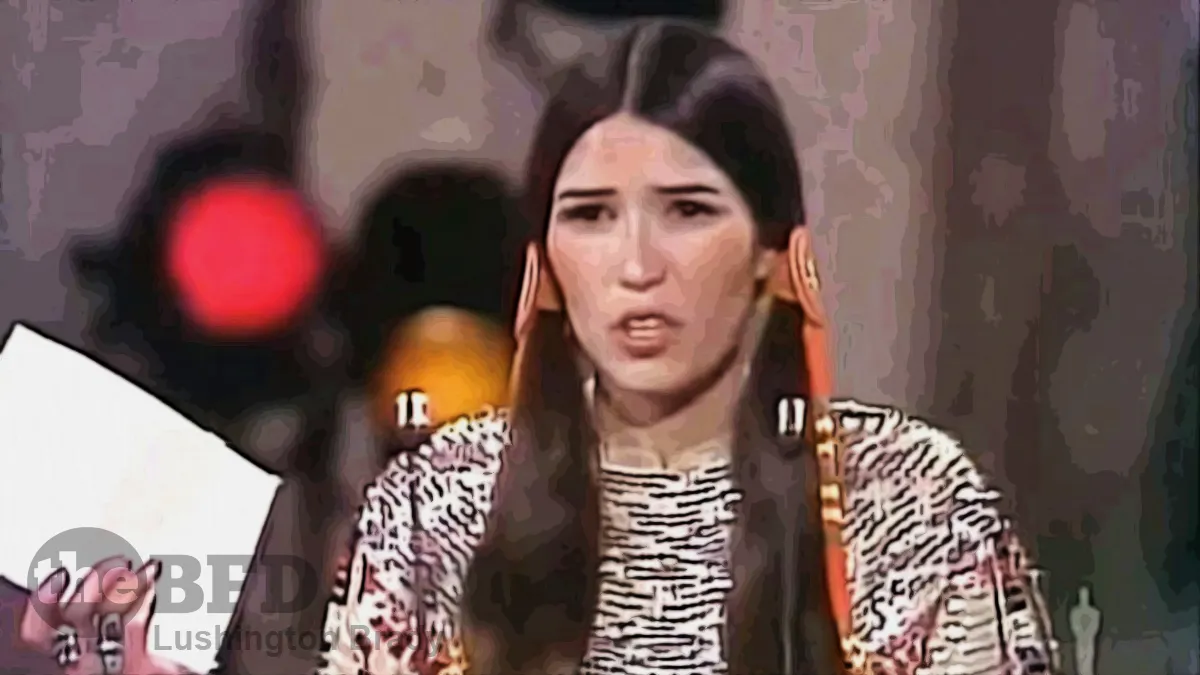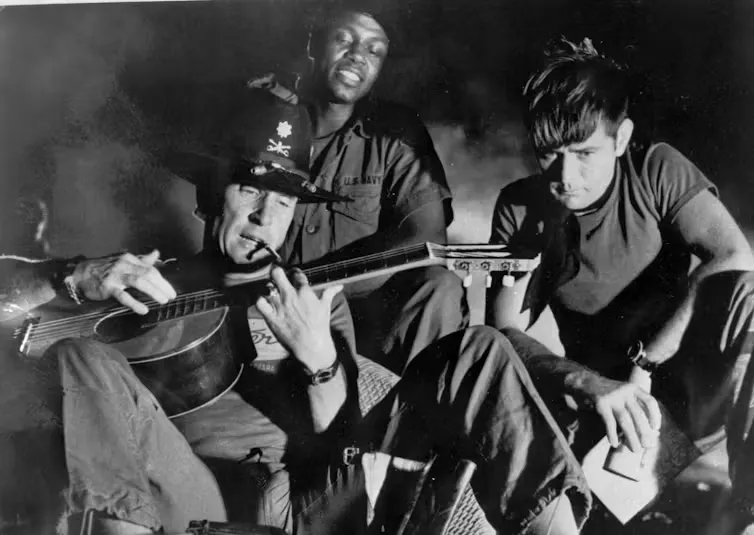Table of Contents
It’s one of the most beloved stories in the mythology of the modern American left: the night a Native American princess appeared at the 1973 Academy Awards to decline the Best Actor Oscar on behalf of Marlon Brando.
The only problem is: “Native American princess” was a myth. A lie. “Sacheen Littlefeather” was, in fact, Marie Louise Cruz, a Mexican wannabe actress and model, who was even less Apache than Elizabeth Warren is Cherokee.
As the decades passed, however, the calm dignity with which she conducted herself that night, easily viewable on YouTube, won over many critics. And interviews she gave in the intervening years, describing a childhood of poverty growing up in a shack, where she and her white mother were victims of domestic abuse and violence by her White Mountain Apache and Yaqui Indian father, made her story a sympathetic one. As such, she enjoyed incredible public support when it was announced months ago that the Academy would finally apologize to her after nearly 50 years.
The death of the “Apache activist and actress”, as she was described in her New York Times obituary earlier this month and in thousands of articles over the years, was mourned widely and uncritically.
In one of her final interviews, Littlefeather told The Chronicle that she took the stage at the Oscars because “I spoke my heart, not for me, myself, as an Indian woman, but for we and us, for all Indian people … I had to speak the truth.”
Except that none of her story was the truth. It was a tissue of lies from start to finish. That’s the harsh judgement of her biological sisters, Rosalind Cruz and Trudy Orlandi. According to “Littlefeather’s” sisters, their family came from Mexico and their father was born in Oxnard, California.
So, why did their sister lie? Pretension and opportunism.
“I mean, you’re not gonna be a Mexican American Princess,” Orlandi said of her sister’s adoption of a fraudulent identity. “You’re gonna be an American Indian princess. It was more prestigious to be an American Indian than it was to be Hispanic in her mind.”
San Francisco Chronicle journalist Jacqueline Keeler has for some time been compiling a public list of “Pretendians”. Just as “stolen valour” fraud infuriates real veterans, genuine Native Americans are not exactly enamoured of fakers trying to appropriate a false identity for personal gain.
Her claim to White Mountain Apache heritage, a federally recognized tribe in Arizona with official enrollment policies and a long history of isolation from Spanish colonialism, was especially curious. Littlefeather was born in Salinas, the hometown of Grapes of Wrath author John Steinbeck, under the name Maria Louise Cruz in 1946. Her parents were Manuel Ybarra Cruz and Gertrude Barnitz. My review of her father’s side of the family tree, where she claimed her Native heritage, found no documented ties between his extended family and any extant Native American nations in the United States.
I did, however, find family records in Mexico going back to 1850 […]
All of the family’s cousins, great-aunts, uncles and grandparents going back to about 1880 (when their direct ancestors crossed the border from Mexico) identified as white, Caucasian and Mexican on key legal documents in the United States. None of their relatives married anyone who identified as Native American or American Indian. All of their spouses also identified as either white, Caucasian or Mexican. White Mountain Apache tribal officials I spoke with told me they found no record of either Littlefeather or her family members, living or dead, being enrolled in the White Mountain Apache.
But “Littlefeather” didn’t just insult Native Americans by lying about her heritage: she also defamed her own family.
The sisters also assert that Littlefeather’s stories about their violent and impoverished upbringing were also patently false […]
“Never saw a reservation till I was 17,” she said. “I lived in a shack in Salinas, Cal. I remember the day we got a toilet, and I brought the neighborhood kids in and gave them the tour.”
“That infuriates me,” her sister Orlandi said when told of the quote. “Our house had a toilet … And it’s not a shack, OK, I have pictures of it. Of course, we had a toilet […]
“My dad never drank. My dad never smoked. And you know, she also blasted him and said my father was mentally ill. My father was not mentally ill.”
As to Littlefeather’s claims she was taken from her “mentally ill” parents at age three and “fostered” by her white grandparents, Orlandi noted: “Their house was right next door. It was just like walking out the door to your neighbor’s house.”
But while hundreds of years of records show no family connection to Native Americans, reviewing 50 years of media reports on “Sacheen Littlefeather” turn up a revealing fact:
A review of five decades of media reports about Littlefeather showed that her claims of affiliation with the White Mountain Apache began after she was a student at San Jose State in the late 1960s and local Bay Area news outlets reported on her burgeoning modeling career.
San Francisco Chronicle







